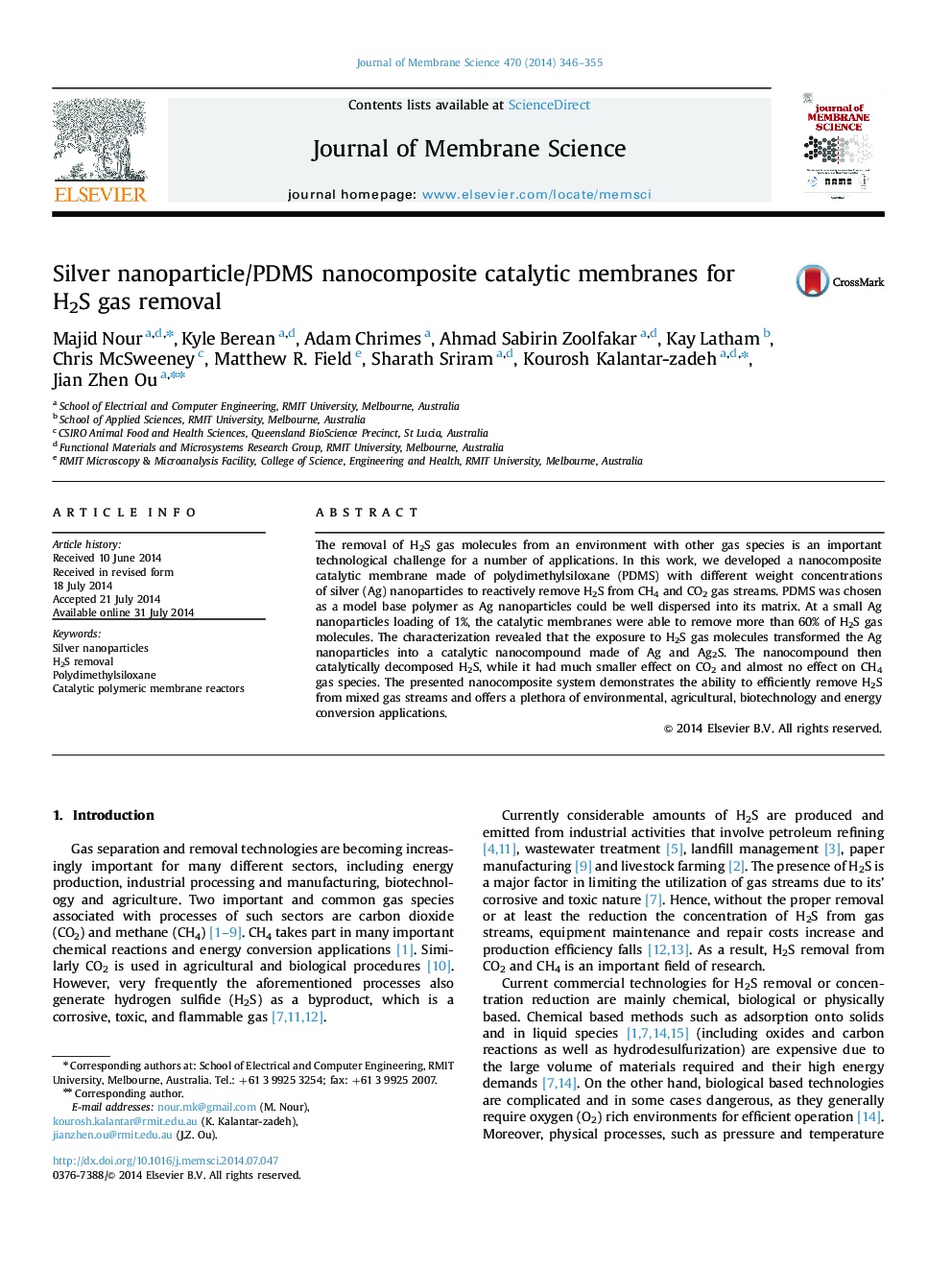| Article ID | Journal | Published Year | Pages | File Type |
|---|---|---|---|---|
| 633335 | Journal of Membrane Science | 2014 | 10 Pages |
Abstract
The removal of H2S gas molecules from an environment with other gas species is an important technological challenge for a number of applications. In this work, we developed a nanocomposite catalytic membrane made of polydimethylsiloxane (PDMS) with different weight concentrations of silver (Ag) nanoparticles to reactively remove H2S from CH4 and CO2 gas streams. PDMS was chosen as a model base polymer as Ag nanoparticles could be well dispersed into its matrix. At a small Ag nanoparticles loading of 1%, the catalytic membranes were able to remove more than 60% of H2S gas molecules. The characterization revealed that the exposure to H2S gas molecules transformed the Ag nanoparticles into a catalytic nanocompound made of Ag and Ag2S. The nanocompound then catalytically decomposed H2S, while it had much smaller effect on CO2 and almost no effect on CH4 gas species. The presented nanocomposite system demonstrates the ability to efficiently remove H2S from mixed gas streams and offers a plethora of environmental, agricultural, biotechnology and energy conversion applications.
Related Topics
Physical Sciences and Engineering
Chemical Engineering
Filtration and Separation
Authors
Majid Nour, Kyle Berean, Adam Chrimes, Ahmad Sabirin Zoolfakar, Kay Latham, Chris McSweeney, Matthew R. Field, Sharath Sriram, Kourosh Kalantar-zadeh, Jian Zhen Ou,
